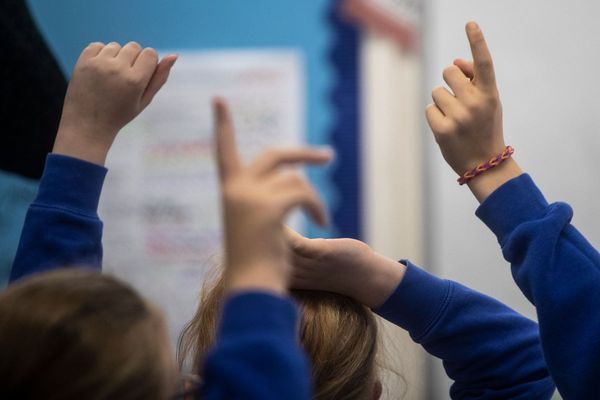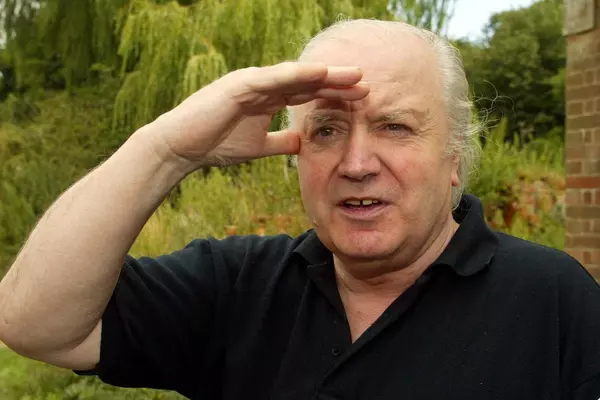
The closer we get to the Voice vote, the more the No-urging right leans back into the power of the politics of nostalgia, with a promise that the past — their version of it anyway — offers some shelter against the uncertainty of the future.
It’s what this year’s International Booker Prize-winning author Georgi Gospodinov tags as “chronostalgia” — the lure of a mass-marketed ersatz past that drives out our shared memories of what actually happened, or what could happen next.
In Australia, at least, it’s seen in traditional media’s adoption of “look at me” sham news, driven by their commercial imperative to hang on to enough of their mass to get them through the next quarter (or, in the case of the ABC, the next Senate estimates hearing).
We saw it again over the weekend, with The Australian front-paging a LARP of the politics of the 2007 Northern Territory intervention by once-were PMs Howard and Abbott, while inside the paper, former High Court chief justice Sir Harry Gibbs was exhumed to refight the undead culture wars of the 1992 Mabo decision.
A Bulgarian writer, Gospodinov’s novelistic rumination on history and memory Time Shelter describes a Europe where, offered a choice by referendum, each country opts to live in their own favoured pre-fabricated narrative of the past.
British writers assume he’s writing about Brexit. Ukrainian writers assume he’s writing about a revanchist Russia. Australians? Maybe he’s writing about the referendum we find ourselves facing.
Politically, the right is offering a replay of the time bracketed by the Mabo decision and the intervention, when reconciliation between settler and First Nations peoples was still nothing to say sorry about.
It’s a double dose of chronostalgia: the Howard project was itself a throwback to the easy-going sunny 1960s when jobs were easy to come by and people knew their place — in terms of race and gender, at least. A time when Australia’s troubling racist history could be discreetly magicked away with the repeal of the law (if not the practice) of the White Australia immigration policy and the self-congratulation of the 1967 referendum that offered the recognition-lite of counting First Nations peoples in the census.
The results in Gospodinov’s fictional referendums give a clue as to why the narrative appeals: in his book (spoiler alert!) much of Western Europe opts for the 1980s, while much of the former Communist Central and Eastern Europe takes the 1990s; in both cases, the moments in their respective national narratives when life was comfortable and the future seemed bright.
As with Brexit and Trump, Gospodinov’s older voting majorities yearn to live in the time when they were young — and, in the process, condemn their children to endure it with them. Sounds more and more like the Howard times.
The traditional media’s failure to grasp the opportunity of the promise of the Uluru statement is already being well canvassed (including, of course, here in Crikey).
They’ve embraced the No case’s daily stunt to drive the news cycle, turned the No leaders into celebrities, hanging breathlessly on their daily pronouncements, and amplified in a shocked-not-shocked style the most fake of news ginned-up by the opponents of the Voice.
Sure, there’s now an all-too-late recognition of the sham-news problem with, for example, Nine’s press gallery leader David Crowe noting Peter Dutton’s response to the immigration debate as “an example of the casual mistruth he has been uttering too often”. It’ll be interesting to see how that insight endures past Saturday.
It has highlighted too just how noxious the News Corp domination of traditional media is. It’s not just because of the narrative it promotes within its own pages. A combination of hard paywalls and social media’s withdrawal from news distribution (as the Substack Unmade highlighted on the weekend) means News’ “news” is safely sequestered into its own declining demographic.
It’s because the rest of the traditional media — and particularly the ABC — have been irretrievably reshaped by the US company’s definition of news, coupled with an unquestioning acceptance of its hand-waving of what makes reporting “fair and balanced”, even at the expense of legitimising racism and misogyny.
The audience-led economics of old media has seen it shed its role of building the future-leaning, modernising national narrative of the imagined communities that underpinned the rise of nation-states (as identified by Benedict Anderson).
Instead, as Gospodinov’s chronostalgia alerts us, the media have picked up (again, largely courtesy of News Corp) a backwards-looking, good-old-days counterfeit of a past. Maybe it’s the Howard aughts, maybe (for the left) the Hawke ’80s, or maybe (for the more ruminating conservative) even the colonial constitutional settlement of the 1890s.
These sorts of synthetic pasts, says Gospodinov, have one thing in common: they assume a dispiriting “future deficit” that denies the most important bit of history — the part that’s yet to come.







